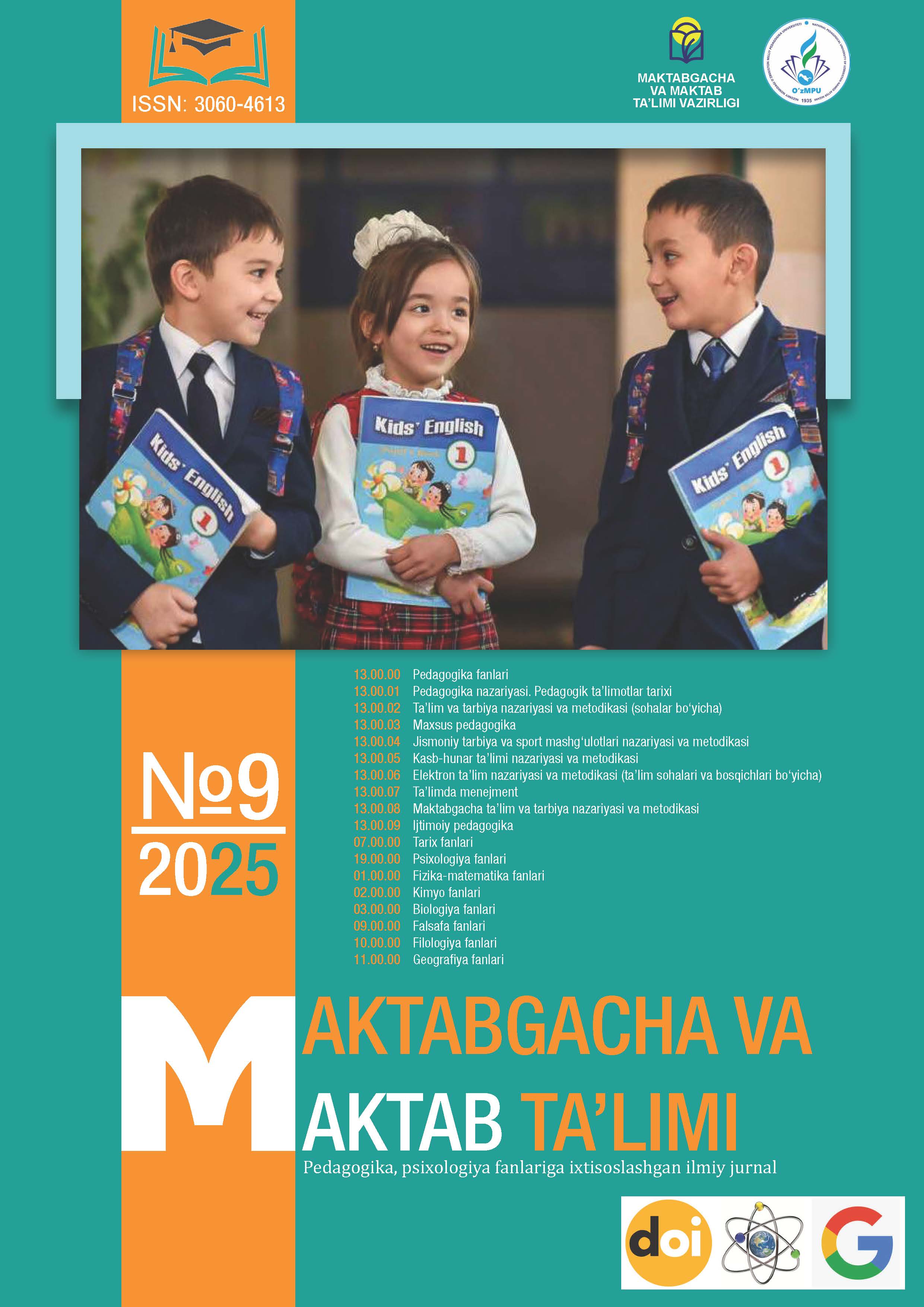Improving the Methodology of Developing Phonetic Competencies of Primary School Students
DOI:
https://doi.org/10.5281/zenodo.17235374Ключевые слова:
phonetics, phonetic phenomena, primary education, competence, methodology, vocabulary dictationАннотация
This article explores in depth the methodology of developing phonetic competencies among primary school
students, focusing on both theoretical foundations and practical applications. Phonetic phenomena–such as sound substitution,
reduction, and addition–are analyzed not only as linguistic features but also as essential components of the
teaching process that influence students’ ability to acquire accurate pronunciation, spelling literacy, and communicative
competence. The study highlights existing methodological shortcomings observed in the teaching of phonetic phenomena,
including insufficient explanations in textbooks and a lack of systematic approaches in classroom practice, and
it offers ways to overcome these challenges.
In order to test the effectiveness of the proposed approaches, the research employed a combination of observation
methods, practical classroom exercises, experimental tasks, and vocabulary dictations adapted to the cognitive level of
primary school students. Through these methods, the study demonstrates that a consistent and systematic integration of
phonetic phenomena into the teaching process leads to significant improvements in students’ language skills. Specifically,
it enhances their ability to recognize and apply phonetic rules, reduces the frequency of spelling errors, enriches their
active and passive vocabulary, and increases their interest in their native language. The findings of the study show that
phonetic competence is a key factor in the development of linguistic literacy at the primary education stage. By mastering
phonetic phenomena at an early age, students are better prepared to understand word formation, grammatical categories,
and orthographic rules in higher grades. Furthermore, the study argues that strengthening phonetic competencies
also contributes to broader educational goals, including the cultivation of critical and independent thinking, creativity,
and motivation for lifelong learning. Overall, the research emphasizes that developing phonetic competencies should
be regarded as a strategic priority in the modernization of primary education. The methodological recommendations
presented in this study provide teachers with practical tools and innovative strategies for improving classroom practice,
thereby aligning the teaching of phonetics with contemporary educational standards and international best practices.
Библиографические ссылки
1. Rasulov, M. va boshq. Uzbek Grammar. Toshkent: O‘qituvchi, 2019.
2. Khudoyberdiyeva, N. Methodology of Teaching Phonetics in Primary Education. Toshkent: Fan, 2021.
3. Ministry of Public Education of the Republic of Uzbekistan. State Educational Standard for Primary Education. Toshkent,
2022.
4. Richards, J. C., & Rodgers, T. S. Approaches and Methods in Language Teaching. Cambridge: Cambridge University
Press, 2014.
5. Nation, I. S. P. Teaching and Learning Vocabulary. Boston: Heinle & Heinle, 2001.
6. Brown, H. D. Principles of Language Learning and Teaching. New York: Pearson Education, 2015.
7. Underhill, A. Sound Foundations: Learning and Teaching Pronunciation. Oxford: Macmillan, 2005.
8. Cameron, L. Teaching Languages to Young Learners. Cambridge: Cambridge University Press, 2001.
9. Celce-Murcia, M., Brinton, D., & Goodwin, J. Teaching Pronunciation: A Course Book and Reference Guide. Cambridge:
Cambridge University Press, 2010.
10. Harmer, J. The Practice of English Language Teaching. Harlow: Pearson Longman, 2007.
Загрузки
Опубликован
Выпуск
Раздел
Лицензия
Copyright (c) 2025 MAKTABGACHA VA MAKTAB TA’LIMI JURNALI

Это произведение доступно по лицензии Creative Commons «Attribution» («Атрибуция») 4.0 Всемирная.

